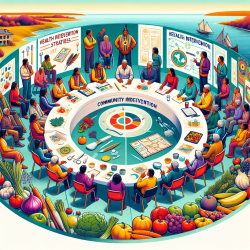Introduction
As a practitioner committed to improving the lives of children through data-driven and evidence-based approaches, understanding the broader context of family and community relationships is crucial. The research article titled The Implications of Intergenerational Relationships for Minority Aging: a Review of Recent Literature provides valuable insights into how intergenerational relationships impact minority aging in the USA. This blog will highlight key findings from the study and offer actionable steps for practitioners to enhance their skills and create better outcomes for minority older adults.
Key Findings from the Research
The research identifies both positive and negative implications of intergenerational relationships for minority aging. Here are some key takeaways:
- Social Interaction and Support: Intergenerational relationships can reduce acculturative stress, provide emotional closeness, and increase access to tangible resources, thereby benefiting minority older adults.
- Sources of Strain: These relationships can also be burdensome, particularly in disadvantaged groups, leading to role strain and negative health outcomes.
- Family vs. Non-Familial Contexts: While family-based intergenerational relationships are more established, non-familial relationships within communities also offer significant benefits.
Actionable Steps for Practitioners
Here are some ways practitioners can leverage these findings to improve their skills and create better outcomes for minority older adults:
- Encourage Social Interaction: Facilitate programs that promote social interaction between generations. This can include community events, volunteer opportunities, and mentorship programs.
- Provide Emotional Support: Train caregivers and family members on the importance of emotional closeness and how to provide it effectively.
- Address Acculturative Stress: Offer resources and support to help minority older adults navigate acculturative stress. This can include counseling, support groups, and cultural competency training for caregivers.
- Implement Evidence-Based Interventions: Use data-driven approaches to evaluate the effectiveness of intergenerational programs. Conduct regular assessments to ensure that these programs meet the needs of minority older adults.
Encouraging Further Research
The study highlights the need for more research, particularly in exploring the impact of intergenerational relationships among diverse subgroups of older adults. Practitioners can contribute to this body of knowledge by:
- Participating in Research Studies: Engage in or support research studies that focus on intergenerational relationships and minority aging.
- Sharing Data: Collect and share data on the outcomes of intergenerational programs to contribute to the broader research community.
- Advocating for Funding: Advocate for funding and resources to support research and programs focused on minority aging and intergenerational relationships.
Conclusion
Intergenerational relationships hold significant potential for improving the well-being of minority older adults. By understanding and implementing the findings from recent research, practitioners can create better outcomes for their clients and contribute to the broader field of minority aging research.
To read the original research paper, please follow this link: The Implications of Intergenerational Relationships for Minority Aging: a Review of Recent Literature.










